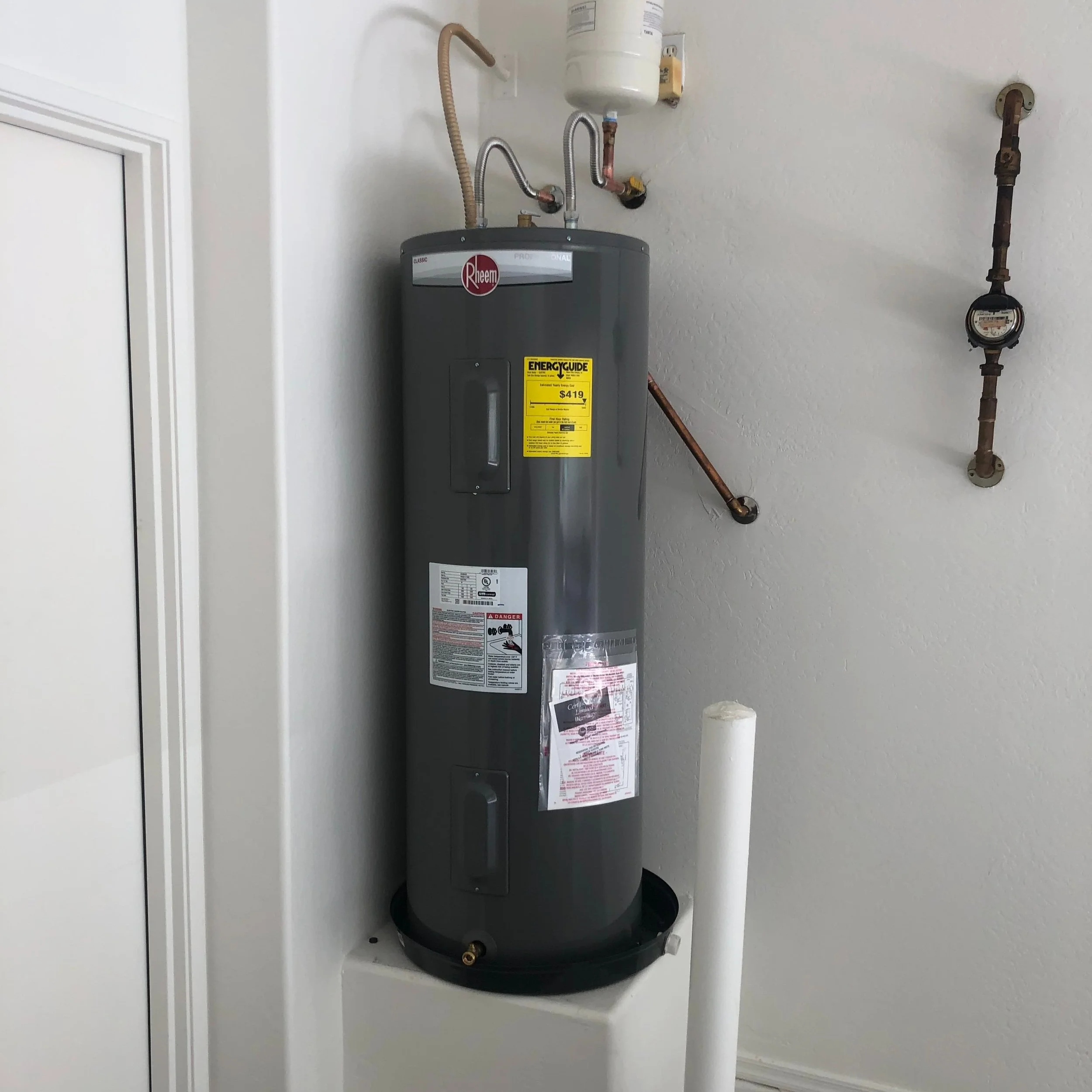Exploring the Different Types of Water Heaters
Several types of water heaters are available, each with its own benefits and potential drawbacks.
Choosing the right water heater for a home or business significantly affects energy efficiency, convenience, and cost. Several types of water heaters are available, each with its own benefits and potential drawbacks. Understanding the different types can help homeowners select the best option to meet their needs.
Traditional Storage Tank Water Heaters
Traditional tank water heaters are the most common type found in homes. These units consist of an insulated tank with a reservoir of hot water, ready for use at any time. When hot water is drawn from the tank, cold water enters the bottom to be heated. A thermostat regulates the heating process, maintaining the water at a desired temperature.
An advantage of storage tank water heaters is their ability to supply multiple outlets with hot water simultaneously, such as showers and faucets. However, they can be less energy-efficient than other types because they continuously heat and reheat water to maintain the set temperature, even when not in use.
Tankless Water Heaters
Tankless water heaters, or on-demand water heaters, heat water directly without using a storage tank. When property owners open a hot water faucet, cold water travels to the heating unit, which is heated by gas or electric elements. This system eliminates the need for a storage tank, reducing standby heat loss.
Because they only heat water when needed, storage tank heaters are more energy-efficient than traditional storage tank heaters. They also have a longer lifespan, typically over 20 years, with proper maintenance. However, they can be more expensive and may require upgrades to a home’s gas line or electrical system. They have a limited capacity to supply hot water to multiple outlets, especially in larger households.
Heat Pump Water Heaters
Heat pump water heaters remove heat from the air or ground to heat water. These units work similarly to a refrigerator, but in reverse. Instead of generating heat directly, they transfer existing heat from one place to another, making them highly energy-efficient.
Heat pump water heaters reduce energy consumption compared to traditional electric water heaters. They are most effective in warm climates, where they can pull heat from the air more efficiently. However, they tend to be larger than conventional water heaters and require sufficient space for installation. Low temperatures can also impact their performance, making them less efficient in colder climates.
Solar Water Heaters
Solar water heaters leverage the sun’s energy. These systems comprise solar collectors and a storage tank, usually installed on the roof. Cold water passes through the solar collectors, which are heated by the sun’s energy and then stored in the tank for use.
Solar water heaters reduce a household’s reliance on fossil fuels and are environmentally friendly. They are particularly effective in sunny regions with high solar irradiance. However, the initial installation cost can be high, and performance may vary depending on weather conditions. In areas with limited sunlight, a backup system may be necessary to provide hot water on cloudy days or during winter.
Condensing Water Heaters
Condensing water heaters are gas water heaters that use the heat from exhaust gases to heat the water. These units have a larger heat exchanger, which captures more heat from the exhaust gases before they are vented outside. This process makes condensing water heaters more energy-efficient than traditional gas water heaters.
The main advantage of condensing water heaters is their high efficiency, which translates to lower operating costs. They are particularly suitable for larger households with high hot water demands. However, they are generally more expensive to purchase and install and require a proper ventilation system to handle the exhaust gases.
Choosing the Right Water Heater
To choose the ideal water heater, homeowners should consider household size, hot water demand, energy efficiency, installation costs, and local climate. Traditional storage tank water heaters are a reliable choice for a consistent hot water supply, while tankless water heaters offer energy savings and space efficiency. Heat pump water heaters balance efficiency and performance, especially in warm climates. Solar water heaters are ideal for environmentally conscious consumers in sunny regions, and condensing water heaters offer high efficiency for natural gas users.
Each type of water heater has advantages and challenges, making it essential to assess specific needs and conditions before deciding. Often, a professional provides valuable insights and helps determine the most suitable option for a particular situation. By understanding the different types of water heaters, property owners can make informed choices that enhance comfort, efficiency, and sustainability.

